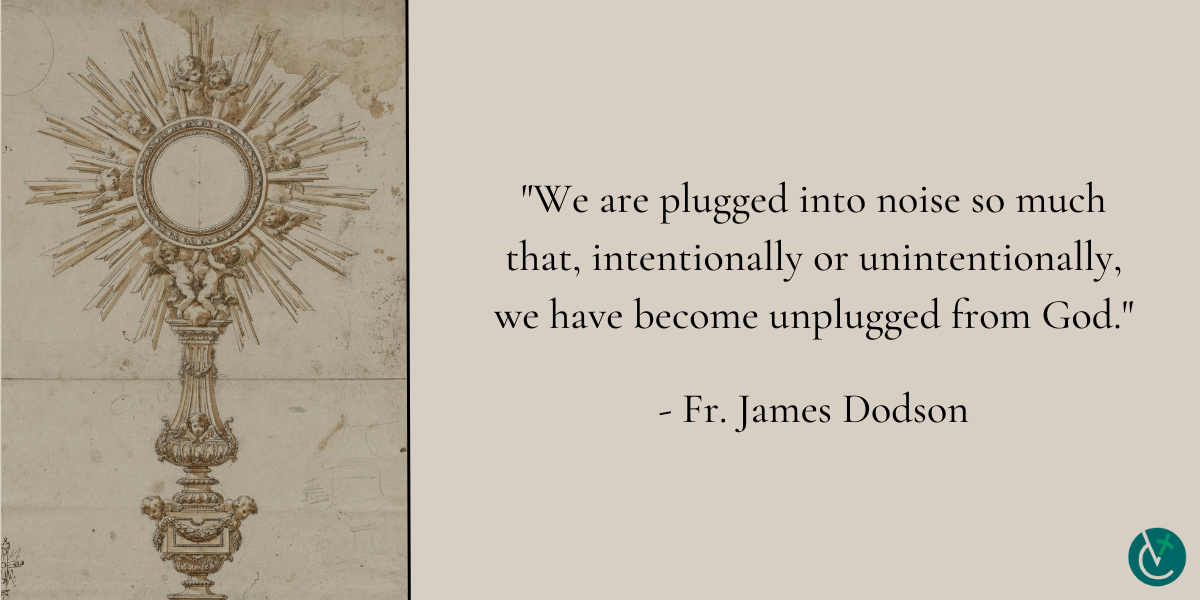
The Most Blessed Sacrament of the Eucharist and the sound of silence
As Catholics we believe and profess that the Most Holy Eucharist is the Body, Blood, Soul and Divinity of our Lord Jesus Christ, who is really, truly, substantially present in the Most Blessed Sacrament.
This truth is unequivocal: Jesus Christ is as present to us in the Most Blessed Sacrament as He is present to the angels and saints in His glorified body in Heaven seated at the right hand of the Eternal Father; the only difference is in the form.
Surveys in recent years indicate that only 30 percent of Catholics believe in the profound truth of our Lord’s true presence in the Eucharist. So many factors, both within the Church and secular culture, have contributed to this sad reality over the course of many decades; factors that must be addressed if faithfulness in our Lord’s true presence in the Blessed Sacrament is to be retrieved and revived in the souls of His flock.
We are part of a culture that wraps itself incessantly in sound. We are plugged into noise so much that, intentionally or unintentionally, we have become unplugged from God. As a result, we tap more into sound than we do into the silence. We have become afraid of silence; we do not know what to make of it or how to relate to it, let alone how to enter into it.
Because nearly every moment of our lives is enveloped in sound, we are paralyzed by silence when it comes and will do almost anything to fill it. As many and varied forms of sound continue to assault the mind, eyes, ears and soul of the human person, the silence in and through which our Lord speaks, is drowned out.
So, each of us is left to ask constantly and answer an essential question: Am I really captivated by Jesus Christ or am I caught up as a prisoner in the sounds that surround, and oftentimes claim to capture, Christ?
In His great love, Almighty God has given us free will, a most precious, yet fragile gift, and it is up to each one of us to decide how we will engage it. In the context of free-will, sound certainly appears to have the upper hand and, unfortunately, has become “the great comforter” of human nature. Why? Because human beings freely choose it and cultivate it to be so, by means of entertainment, social media, idle chatter and speaking from hearts where the power of silence is not intimately known since sound itself has become an escape and “true” treasure.
Yet it is precisely the reality of unending sound that places the soul in danger of not being able to find rest in silent solitude with Almighty God.
How is it possible to hear, know and respond freely to our vocation – God’s divine call specific to each one of us, marking out our path to holiness – if we never become familiar with the sound of silence? We increase endlessly, so-to-speak, and as we do, our ability to see our Lord with eyes of faith and listen to Him with ears of prayerful attentiveness decreases. It is St. John the Baptist who reminds us that because our Lord is on the scene “He must increase, but I must decrease” (Jn 3:30).
Oftentimes without being consciously aware of it, our restless heart, fatigued and rattled by the reverberation of unfulfilled, echoing sound, craves the silence and stillness that our Lord offers to us, but we do not know what to “do” with that silence, thus sending the cacophony into an unmitigated crescendo.
Perhaps this is one reason why there continues to be such a decline in the number of Catholics who spend time with our Lord in the silence of the Most Blessed Sacrament. When one does not know what to do and does not believe that there is someone else present, the silence can be deafening, too much to handle. And rather than allowing oneself to be “broken” by the Lord, he goes back to what he knows so well, even though it has proven to be ultimately fruitless.
Ironically, the familiarity of unproductive sound is more comforting than the sound of unknown silence.
But to overcome this reality we must freely choose to break away from the sound, enter into the silence and face it with courage and conviction. At first, this apparent void may be unnerving. But the more we listen to it, the more we crave it because we learn to hear in it the voice of God, who waits for us patiently in silence, so that He may lead us away from the noise of the world’s dysfunction, agenda, frustrated plans and back to Himself through the peace of Christ.
It is a spiritual process that takes time, commitment, perseverance and discipline; we are never abandoned in the silence, we are not “without,” but find rest and solitude in the Lord Jesus Christ who is really, truly, substantially present in the Most Holy Eucharist in tabernacles throughout the world. Ironic, is it not, that in a world wrapped in sound, we are surrounded by the sound of silence in the Most Blessed Sacrament?
In coming to know silence in our life, may we come to find, know and love the savior of the world, for the purest and truest sound is found in the Incarnate Word. The silence of the Most Blessed Sacrament is no silence at all. It is, rather, the divine eloquence of Almighty God.
What sound does the Eucharist make? No sound at all, you may say; but it is the sound of silence – “the most beautiful sound in the world I have ever heard.”
—Father James Dodson is vocations director for the Diocese of Burlington.
—Originally published in the Spring 2022 issue of Vermont Catholic magazine.

